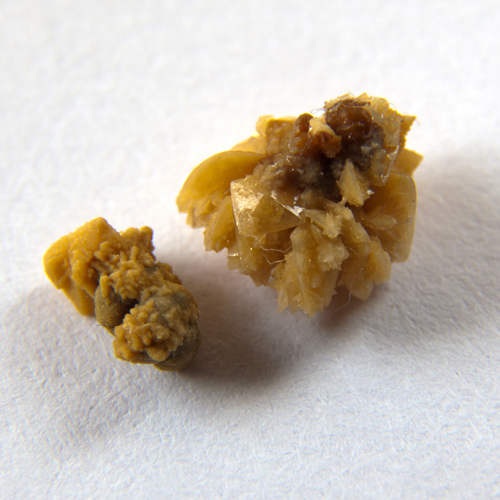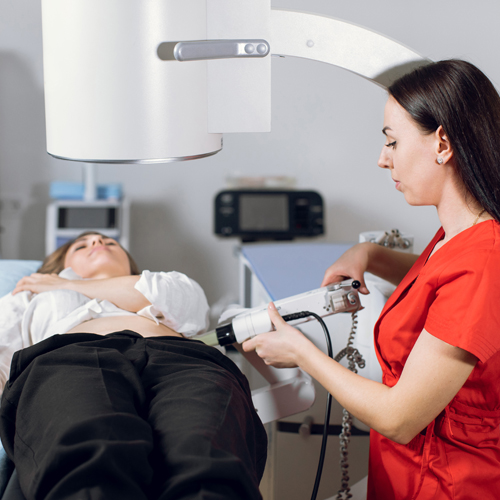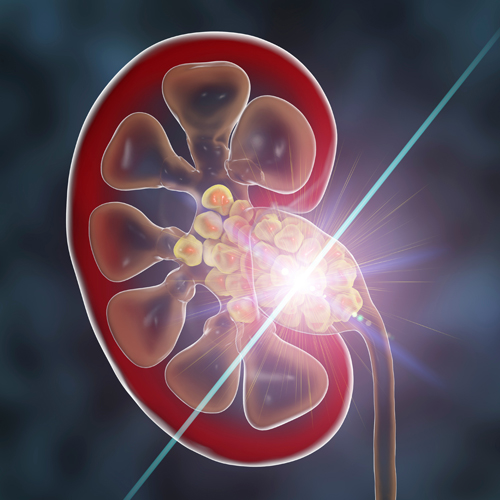In most situations, extracorporeal shock wave lithotripsy is very well tolerated with mild to minimal pain and discomfort.
What are urinary stones?
The urinary track is responsible for the filtering and elimination of waste from the blood, starting from the kidneys and working its way through the ureter to the bladder, and then out through the urethra. When a substance does not filter through the urinary tract properly, it can crystalize, turning into stones that can be painful as they interfere with the urinary tract function.
Urinary stones may occur in the kidneys as a result of excessive calcium, mineral magnesium, uric acid, or cysteine that has not dissolved or washed away, resulting in the crystallization of the substances in kidney.
Bladder stones often form as a result of urine that remains in the bladder, whether due to failure to completely empty the bladder, inflammation of the urinary tract, or use of a bladder catheter. The remaining urine and substances in that urine can crystallize if not evacuated quickly enough.
In some cases, certain metabolic disorders can cause recurrent stones, these include:
- Gout – A disorder that results in high uric acid levels.
- Cystinuria – A condition that causes excessive amounts of cysteine in the urine.
- Renal disease – Decreased ability to filter wastes out of the blood, resulting in waste build-up.
- Overactive parathyroid glands – A condition that causes excessive vitamin A or D build up.
Signs and symptoms of urinary stones may include:
- Blood in the urine
- Nausea
- Urinary urgency
- Lower back pain
- Painful urination
- Interrupted flow in urination
What are the risk factors associated with urinary stones?
Genetics Having a family member with kidney stones can increase your risk of urinary stones.
DehydrationNot drinking enough water each day can increase your risk of kidney stones. People who live in warm climates and those who sweat a lot may be at higher risk than others.
Certain dietsEating a diet that's high in protein, sodium and sugar may increase your risk of some types of kidney stones. Too much sodium in your diet increases the amount of calcium your kidneys must filter, significantly increasing your risk of kidney stones.
Being Obese High body mass index, a large waist size and weight gain have been linked to an increased risk of urinary stones.
Digestive diseases and surgery Gastric bypass surgery, inflammatory bowel disease or chronic diarrhoea can cause changes in the digestive process that affect your absorption of calcium and water, increasing the levels of stone-forming substances in your urine.
Other medical conditions Diseases and conditions that may increase your risk of kidney stones include renal tubular acidosis, cystinuria, hyperparathyroidism, certain medications and some urinary tract infections.
Extracorporeal Shock Wave Lithotripsy (ESWL)
When stones are located in the kidney or bladder, and are visible in an x-ray, extracorporeal shock wave lithotripsy may be the ideal treatment option. This procedure involves the treatment of shock waves that are generated by a machine, delivering energy from outside of the body, through the skin and tissue, directly onto the stone. These waves help shatter the stone into smaller particles that can easily pass through the urinary tract. The treatment is both simple and quick.
Flexible Ureterorenoscopy and Holmium YAG Laser lithotripsy
Laser lithotripsy has broadened the indications for ureteroscopic stone management to include larger stone sizes throughout the entire urinary track. The use of the Holmium YAG laser appears to be an adequate tool to disintegrate ureteral calculi independent of primary location. Combination of the semi rigid and flexible ureteroscopes as well as the appropriate endourologic tools could improve the stone clearance rates for proximal calculi regardless of stone-size.
Surgery
Surgical treatments for kidney and bladder stones may be recommended, depending on each patients specific needs. Reasons for surgical treatment may include:
- A trial of stone passage has been attempted but it has still not passed and is causing pain.
- The stone is causing obstruction of urinary tract and potential damage to the kidney.
- The stone is resulting in urinary tract infection.
- Our physicians can help determine if surgical treatment may be right for you.
- The stone is in the kidney, medical treatment and dietary changes have been made, and the stone is either increasing in size or causing irritation.
- The stone is deemed too large to pass on its own.
Frequently Asked Questions with regards to Kidney and Bladder stones
-
Does ESWL hurt?
-
Are there any complications to ESWL?
As with most treatment methods, some people may experience complications following ESWL treatment. Some of these complications can include bleeding around the kidney and pain caused by stone fragment passages. However, the pain caused by these stone fragments is typically less severe than a kidney stone not treated with ESWL.
-
I only have one kidney. Can ESWL be performed on me?
Yes! ESWL is a procedure which can be performed on patients with only one working kidney, as well as children and older individuals!
-
What are the symptoms of a kidney or bladder stone?
One of the main symptoms of a kidney or bladder stone, is a stabbing and extremely severe pain that starts in the upper back and migrates to the abdomen and groin. Women commonly report that the pain is worse than child birth, and changing positions does not help to relive the pain.






